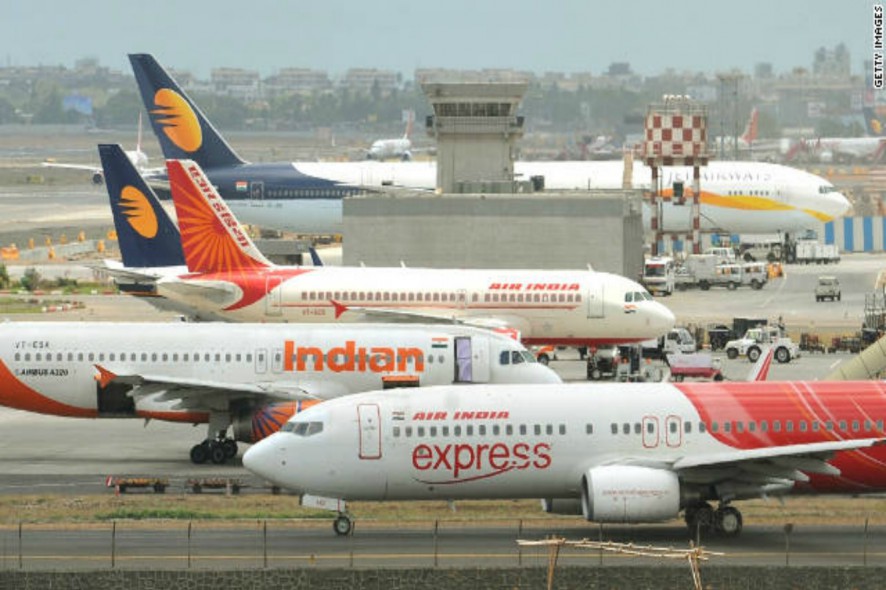Air passengers will soon be able to make calls and browse the internet while flying in Indian airspace, with the telecom regulator recommending that domestic and international airlines be permitted to offer both the services. Furthermore, the telecom regulator in its recommendations to the Department of Telecommunications (DoT), mentioned that as long as provision of the service is technically feasible and security concerns can be addressed, there should be no regulatory barrier in the provisioning of any of these services, since there is a strong demand for mobile and data connectivity on flights and these expectations are pushing up the demand for fast, seamless aircraft connectivity.
The evolution of passenger attitude towards on-board WiFi means that where it was once seen as a novelty or luxury, it is now considered a necessity.
Indian airlines said that the facility would help them to compete with foreign carriers, although installing equipment to offer WiFi would be expensive. Analysts said that the service will help travellers immensely, although noise levels within aircraft may rise. Globally, more than 30 airlines allow voice calls and internet access during flights.
A quarter of the planes will be equipped with IFC in 2018 and there will be 1 billion passenger journeys on such aircraft, and thus TRAI has further suggested creating licences for IFC service providers. It said foreign telecom operators should be allowed to offer voice services in partnership with a local telco so that the mandated lawful interception requirement is met. Also, further suggesting the IFC service provider to be imposed a flat annual licence fee of Re 1, so that there should not be any difference in the charges to be levied for domestic and foreign airlines in Indian airspace. The regulator said IFC providers should have the flexibility to use technology and spectrum as long as they are consistent with international standards and do not interfere with terrestrial networks. The TRAI said that it would ensure that there is no encroachment on the scope of terrestrial internet service provided by telecom service providers as well as practically there won’t be any appreciable discontinuity in the provisioning of internet services to the flyers.
The DoT, through its letter dated 10th August 2017, had sought the regulator’s views on introducing voice, data and video services over Indian airspace for domestic, international and overflying flights, to which the TRAI has issued and finalized its recommendations on in-flight connectivity on 18th January 2018, and the Press Release was on 19th January 2018. The highlights being –
1. Both, Internet and MCA service should be permitted as In-Flight Connectivity (IFC) in the Indian airspace.
2. The operation of MCA services should be permitted with minimum height restriction of 3000 meters in Indian airspace for its compatibility with terrestrial mobile networks.
3. Internet Services through Wi-Fi onboard should be made available when electronic devices are permitted to use only in flight/ airplane mode.
4. A separate category of “IFC Service Provider” should be created to permit IFC services in Indian airspace. The IFC service provider should be required to get itself registered with the DoT and it need not necessarily be in Indian entity.
5. The IFC service provider be permitted to provide IFC services, after entering into an arrangement with Unified Licensee having appropriate authorization.
6. If IFC service provider partners with Unified Licensee having Internet Service (Category ‘A’) authorization for the provision of Internet services onboard as part of IFC, then (i) If the licensee also has the Commercial VSAT CUG service authorization, it can provide the satellite links also. Alternatively, (ii) Unified Licensee with National Long Distance (NLD) service authorization can provide the satellite links.
7. The regulatory requirements should be same for both Indian registered and foreign registered airlines for offering IFC services in Indian airspace.
8. The deployment of a gateway in India provides an effective mechanism to lawfully intercept and monitor the in-cabin internet traffic while the aircraft is in Indian airspace. Therefore, the onboard Internet traffic must be routed to a Satellite Gateway on Indian soil. Such an obligation should be imposed regardless of whether the satellite in question is an Indian Satellite System or not.
9. The IFC service provider should be permitted to use either INSAT systems (Indian Satellite System or foreign satellite capacity leased through DoS) or foreign satellites outside INSAT systems in the Indian airspace.
10. To promote the adoption of IFC services in Indian airspace, the IFC service provider should be imposed a flat annual Licence Fee of token amount of Re 1. However, the same may be reviewed and amended at a later stage, if need be.
11. Spectrum neutral approach should be adopted subject to the condition that the frequency bands have been harmonized and coordinated for their use at the ITU. It would facilitate the IFC services in all the bands (L, Ku and Ka] in which IFC services are currently being provided.
12. The framework recommended for IFC services in Indian airspace should be made applicable to all types of aircrafts such as commercial airlines, business jets, executive aircrafts etc.
The TRAI also further plans to give its view for the new telecom policy (NTP) which is being drafted by the telecom department. The regulatory body of the telecom department (TRAI), has further created four working groups within the regulatory body which will contribute their outlooks to the Department of Telecommunications (DoT). The DoT plans to bring the policy by March 2018.
[Source: The Economic Times and Press Release No. 08/2018]







